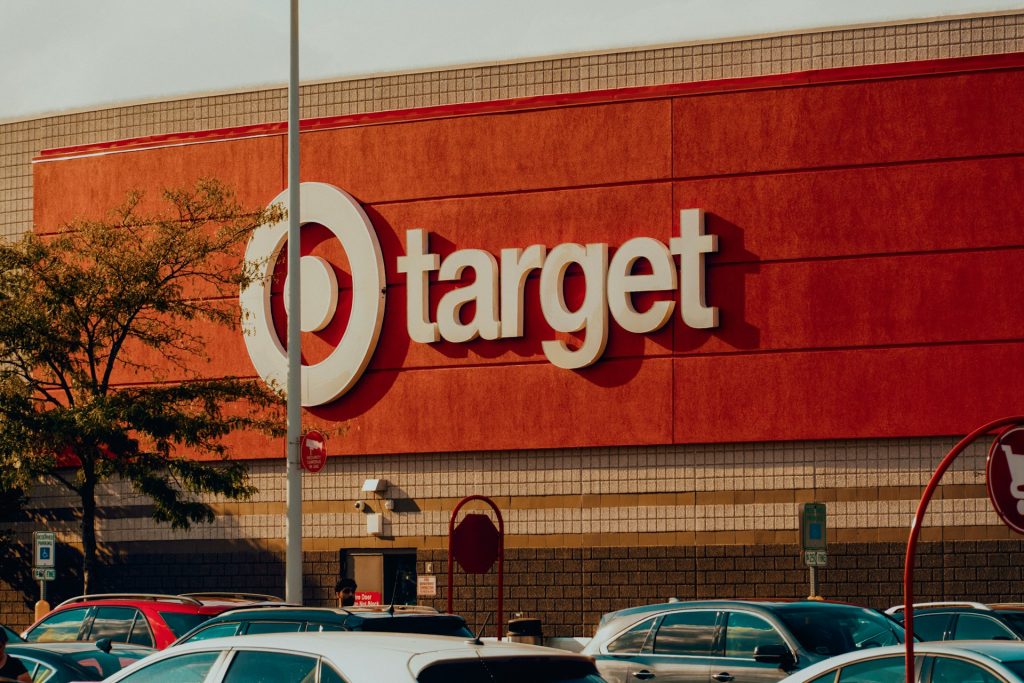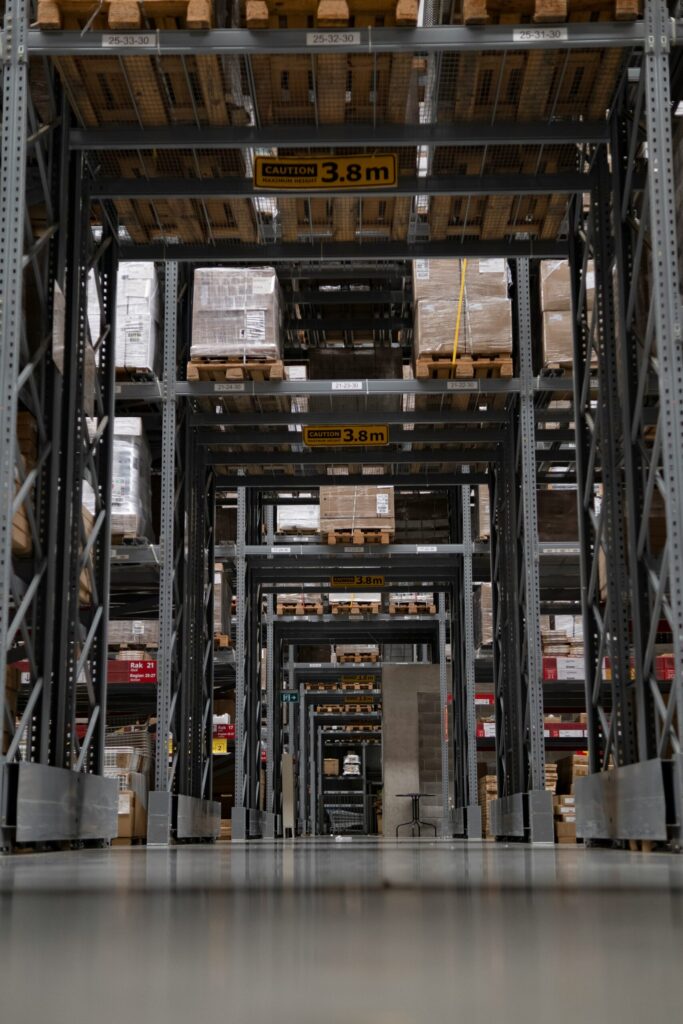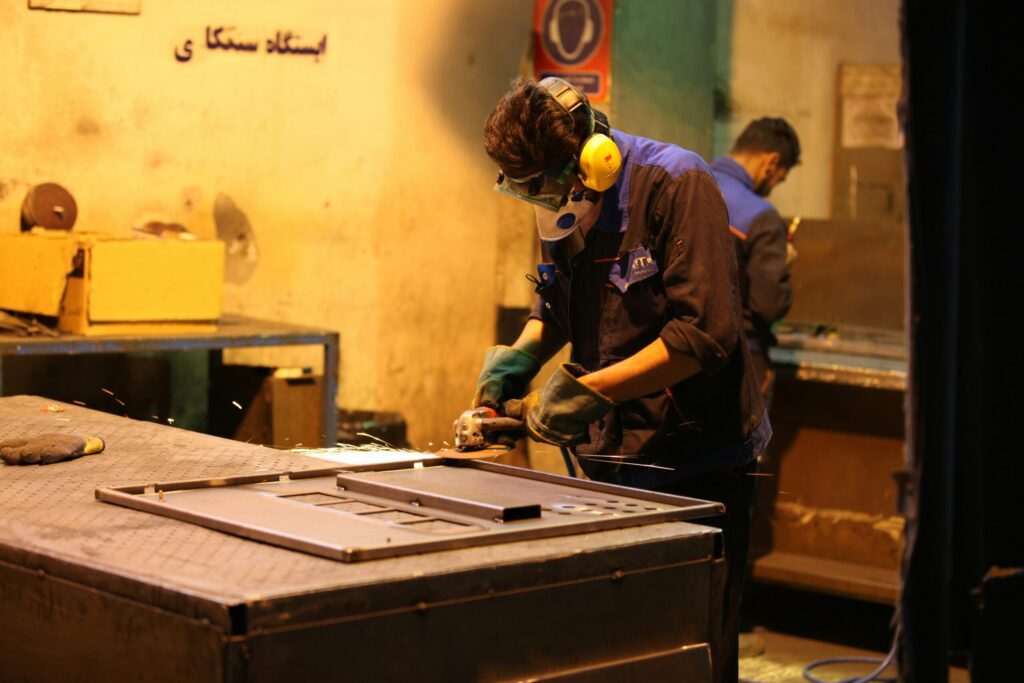Target is everywhere. Over 1,900 stores across the U.S., plus distribution centers, corporate offices, and roughly 440,000 employees. They’re constantly hiring—or at least, that’s what the “Now Hiring” signs suggest. Walk into almost any Target and you’ll see posters advertising open positions, competitive pay, and great benefits.
So why is landing a job there sometimes harder than it looks?
The application process is entirely digital, running through Target’s Workday system. There are video interviews where you talk to a camera instead of a person. Some assessments feel like personality tests. And there’s a lot of waiting—days or weeks between application and response, with minimal communication about where you stand.
Some people apply and get hired within days. Others apply repeatedly and never hear back. The difference often comes down to understanding how Target’s hiring system actually works, what they’re really looking for, and how to position yourself as the kind of applicant they want.
Read Also: Five Below Careers in the USA — Everything You Need to Know
Understanding What You’re Applying For
 Target isn’t just one type of job. The company hires for completely different roles with different expectations, pay, and work environments.
Target isn’t just one type of job. The company hires for completely different roles with different expectations, pay, and work environments.
Store hourly roles
These are what most people think of when they picture Target jobs. You’re working the sales floor, running registers (they call cashiers “Guest Advocates” in Target-speak), stocking shelves, fulfilling online orders, working in specialty departments like electronics or beauty, or handling customer service issues. These are entry-level positions, typically part-time, with schedules that change weekly.
The work itself is straightforward but physically demanding. You’re on your feet for entire shifts, lifting boxes, dealing with customers who range from pleasant to nightmarish, and working under pressure during rushes. Holiday seasons and weekends are mandatory—retail doesn’t stop because it’s Thanksgiving.
Store leadership
This includes team leads, supervisors, and managers who oversee departments and hourly staff. These roles pay better but come with more stress—you’re managing people, dealing with performance issues, hitting sales targets, and working irregular hours, including early mornings and late nights. Many store leaders started as hourly workers and got promoted, but it’s not automatic, and it takes time.
Distribution center roles
These are warehouse jobs—receiving inventory, picking orders, packing shipments, and operating equipment. The work is physically demanding, often involving 10-12-hour shifts with mandatory overtime during peak periods. Pay is typically higher than in store positions to compensate for the intensity, but turnover is also high because the work is grueling.
Corporate and office roles
Corporate and office roles at Target headquarters in Minneapolis or regional offices cover functions like merchandising, finance, marketing, technology, and operations. These require specific education and professional experience. The hiring process is more traditional (resume screening, multiple interviews), and the work environment is completely different from stores or warehouses.
Most people reading this are probably interested in store positions, which is what we’ll focus on.
Read Also: CVS Health Careers in the USA — Everything You Need to Know
The Basic Requirements—And What They Actually Mean
 Target lists some basic eligibility requirements that seem simple but have implications worth understanding.
Target lists some basic eligibility requirements that seem simple but have implications worth understanding.
Minimum age is 16 for most store roles, 18 for distribution centers. If you’re 16 or 17, you can work at Target, but federal and state laws limit your hours and the tasks you can perform. You can’t operate certain equipment, work late nights, or work during school hours on school days. This makes you less flexible than adult workers, which can affect whether you get hired and how many hours you get.
Legal work authorization is non-negotiable. You must be legally allowed to work in the U.S. and provide documentation during the hiring process. This means a Social Security Number or work authorization documents. Target uses E-Verify to confirm employment eligibility, so there’s no fudging this.
Education requirements are minimal for hourly positions—most don’t require high school diplomas, though having one certainly doesn’t hurt. What matters more is availability, reliability, and the ability to pass their assessments.
Valid ID will be needed during onboarding—driver’s license, state ID, or passport to complete I-9 employment verification.
Here’s what they don’t list but matters enormously: availability. Target operates extended hours—many stores are open 8 AM to 10 PM or later, seven days a week. They need people who can work evenings, weekends, and holidays. If you can only work Monday and Wednesday afternoons, you’re not getting hired. If you’re completely open and flexible, you dramatically increase your chances.
Read Also: JetBlue Careers: What You Need to Know
The Application Process—What Actually Happens
Target’s application happens entirely through their Workday system. You’re not walking into stores and handing managers paper applications. You’re not calling to follow up. Everything happens digitally, and understanding this system is crucial.
Finding openings
This starts at Target’s careers website. You can search by location, job type, and department. You can also set up job alerts that notify you when new positions matching your criteria get posted.
Here’s the thing about those job postings: they stay up even when positions are filled or when they’re not actively hiring. Stores list “Guest Advocate” openings constantly because turnover is high and they’re always collecting applications. Don’t assume a posting means they’re urgently hiring right now.
Creating a Workday account
This is your first step. You’ll enter basic information, create login credentials, and set up your candidate profile. If you’ve applied to any company using Workday (many large corporations use it), your login might work across systems.
The application itself
This asks for work history, education, skills, and availability. You can upload a resume, which is optional but recommended—it shows you put effort in and gives recruiters more context. You can also import information from LinkedIn, which can save time.
Availability questions are critical.
Target asks what days and times you can work. Be as flexible as possible here. Saying you can only work weekday afternoons eliminates you from consideration at most stores. Retail needs people for evenings, weekends, and holidays. The more open your availability, the more likely you are to be hired.
Some people try to game this by indicating full availability in the application, then requesting limited schedules after getting hired. This works sometimes, but it also gets you fired or given zero hours until you quit. Better to be realistic upfront while still being as flexible as you genuinely can be.
Assessments and questions
This varies by role but typically includes situational judgment tests where you’re presented with workplace scenarios and asked how you’d respond. These aren’t pass/fail exactly, but they’re evaluating whether your responses align with Target’s values and desired behaviors.
Answer authentically but thoughtfully. They want to see customer service orientation, teamwork, problem-solving, and reliability. If a question asks how you’d handle a difficult customer, the answer isn’t “tell them to leave.” It’s “listen to their concern, show empathy, and find a solution or escalate to a leader.”
Read Also: How to Prepare For Job Interview When Changing Careers in US
The Waiting Game and What It Means
 After you hit submit, you wait. And wait. And sometimes hear nothing.
After you hit submit, you wait. And wait. And sometimes hear nothing.
Target’s timeline varies enormously. Some applicants get contacted within days, especially during peak hiring seasons (late summer for back-to-school, October-November for holidays). Others wait weeks or never hear back at all.
Application review can take anywhere from a day to a week or more. Recruiters are screening hundreds of applications. They’re looking at availability first, then location convenience, then work history and anything that stands out positively or negatively.
Automated rejection emails go out to applicants who don’t meet basic criteria or whose profiles don’t match current needs. If you get one of these, it’s often about availability or the specific store not actively hiring despite the posting being live.
If you’re not rejected immediately, you might move to an assessment stage or get invited to a video interview. Or you might just sit in limbo with no updates. Target’s system doesn’t always communicate clearly about where you stand.
Reddit is full of people asking, “I applied two weeks ago and haven’t heard anything—should I follow up?” The answer is: you can try calling the store and politely asking about your application status, but it probably won’t help much. Hiring happens through corporate systems now, not store managers making judgment calls. Either you’ll get contacted or you won’t.
The frustrating truth is that application volume is high and Target can afford to be selective. Even though they’re “always hiring,” they’re not desperate for just anyone. They want specific availability, specific demographics for certain roles, and people who’ll stick around.
Read Also: Apprenticeship Programs in the USA (2025): Where to Apply and How to Qualify
The Video Interview—What You’re Really Being Evaluated On
If you make it past the initial screening, you’ll likely face a video interview. This is Target’s way of efficiently screening candidates without requiring in-person meetings.
How it works
You receive an email invitation with a link to a video interview platform (often HireVue). You’re given questions, usually 3-7 of them, and you record your answers using your phone or computer camera. You can’t redo answers. You get one shot.
Questions are behavioral: “Tell me about a time you helped a customer.” “Describe a situation where you had to work as part of a team.” “How do you handle stress?” “Why do you want to work at Target?”
What they’re actually evaluating
This goes beyond just your answers. The technology analyzes your word choice, tone, body language, and confidence level. It’s a partially automated assessment—algorithms flag candidates who seem nervous, unfocused, or give weak answers. Human reviewers then make final decisions.
This feels invasive and impersonal because it is. You’re talking to a camera, not a person. There’s no back-and-forth, no rapport building, no chance to clarify or elaborate naturally.
How to not bomb it
Find a quiet, well-lit space. Test your camera and microphone beforehand. Dress like you would for an in-person interview—at least business casual from the waist up.
Structure your answers using the STAR method (Situation, Task, Action, Result). Briefly describe the context, explain what you needed to accomplish, detail what you did, and explain the outcome. Keep answers to 1-2 minutes—long enough to be thorough, short enough to stay engaging.
Smile, make “eye contact” with the camera, and project confidence even if you feel awkward. The algorithm is looking for enthusiasm and professionalism.
Practice beforehand. Record yourself answering common questions and watch the playback. You’ll notice things—you say “um” constantly, you look away from the camera, you ramble. Fix these before the real interview.
And here’s the pragmatic advice: if you completely bomb the video interview or realize mid-way you gave terrible answers, you can’t redo it for that application. But you can potentially apply to a different position at a different store a few weeks later and get another chance.
Read Also: Careers That Pay Well in the USA (2025)
After the Interview—Background Checks and Offers
If Target likes your video interview, you might get a phone call or email inviting you to an in-person interview. Or you might skip directly to a job offer. It varies by store and position.
Conditional offers are exactly that—conditional on passing background checks. Target conducts criminal background checks, verifies your identity and work authorization, and may check references.
The background check typically takes several days to a week. If anything comes up—criminal history, discrepancies in your application—Target will either rescind the offer or ask for clarification.
Once the offer is final, you’ll receive details through Workday, including your start date, orientation schedule, pay rate, and initial training information. You’ll complete a bunch of paperwork online—tax forms, direct deposit setup, benefits enrollment if eligible, and various policy acknowledgments.
The Pay Reality—Is It Actually Competitive?
Target markets itself as paying competitive wages. Let’s talk about what that actually means.
Starting pay ranges from $15 to $24 per hour, depending on location and position. The lowest rates are in areas with low cost of living; the highest are in expensive markets like San Francisco or New York, where $15/hour wouldn’t attract anyone.
Most store positions start around $15-$17/hour in average markets. That’s roughly $30,000-$35,000 annually if you worked full-time year-round, but many Target positions are part-time.
Let’s do the math. At $16/hour working 25 hours per week (a common part-time schedule), you’re making $400 per week before taxes, roughly $320-$350 after taxes. That’s about $1,400 per month. In most U.S. cities, that barely covers rent, let alone food, transportation, and everything else.
Target emphasizes that they pay “above minimum wage,” which is true—federal minimum wage is still $7.25/hour. But minimum wage hasn’t kept pace with inflation or the cost of living. Paying double the federal minimum doesn’t mean the wage is actually sufficient.
Full-time positions with benefits are harder to get than part-time positions. Target maintains a workforce that’s heavily part-time to minimize benefit costs and maximize scheduling flexibility. If you want 40 hours per week with health insurance, you’re competing for a limited number of positions.
Distribution center pay is higher—often $18-$22/hour starting, because the work is more physically demanding and they need to attract workers willing to do it. But again, the work is genuinely hard. Twelve-hour shifts on your feet, lifting heavy items, working in temperature-controlled environments (cold for frozen goods, warm for standard warehouses), and dealing with repetitive strain injuries.
Read Also: Walgreens Job Application in the USA: What You Actually Need to Know
Benefits—Who Actually Gets Them?
Target’s benefits sound good in recruiting materials. Let’s talk about who actually accesses them.
Healthcare (medical, dental, vision) is available to team members working an average of 30+ hours per week. If you’re part-time working 20-25 hours weekly, you don’t qualify. Even if you do qualify, premiums are deducted from your paycheck, so your take-home pay drops.
401(k) retirement plan with company matching is offered, but you need to work enough hours to qualify, and most hourly workers making $16/hour aren’t in financial positions to contribute to retirement accounts when they’re struggling with immediate expenses.
Paid time off accrues based on hours worked and tenure. New part-time workers accrue minimal PTO—maybe a few days per year. Full-time workers and those with longer tenure get more. But using PTO can be difficult because retail schedules are tight, and taking time off means shifts don’t get covered.
Employee discount is 10% on most merchandise, 20% on Target-owned brands, and wellness products. This is nice if you shop at Target anyway, but it’s not a game-changer financially.
Tuition assistance programs exist for eligible team members pursuing education, which is genuinely valuable if you’re going to school and working simultaneously. But again, eligibility requirements mean not everyone can access it.
The bottom line: benefits are decent for full-time employees with tenure. For part-time workers, which represents a large portion of Target’s workforce, benefits are limited.
Read Also: Walmart Delivery Jobs in the USA — Complete Guide (2025)
What Working at Target Is Actually Like
Let’s talk about the day-to-day reality beyond the recruiting pitch.
Schedules change weekly. You’re not working the same shifts every week. Target uses scheduling software that generates schedules based on forecasted store traffic and labor budget. You might work mornings one week, closing shifts the next. You might get 30 hours one week, 15 the next.
This makes planning your life difficult. You can’t easily hold a second job because you don’t know your schedule far in advance. You can’t commit to evening classes because you might be scheduled to close. The inconsistency is hard on budgeting, childcare, and mental health.
The work is physically demanding. Even cashier roles involve standing for entire shifts. Fulfillment roles (picking online orders) involve walking 10+ miles per day through the store. Stocking involves lifting boxes, bending, reaching, and moving constantly. You go home exhausted.
Customer service challenges are real. Most customers are fine. Some are demanding, rude, or unreasonable. You’re expected to maintain composure and provide excellent service even when someone is yelling at you about a coupon that doesn’t work or a return policy they don’t like.
Turnover is high. People quit constantly—usually within the first few months. The combination of low pay, inconsistent hours, physical demands, and retail stress burns people out. This creates constant training of new people, which makes the job harder for everyone.
Career advancement exists, but it is slow. Target promotes from within, and many store leaders started as hourly team members. But getting promoted takes time, requires availability for leadership positions (which often means even more irregular hours), and involves competition with other employees. Most hourly workers stay hourly.
Read Also: Pizza Hut Jobs in the USA: What It’s Actually Like Working There
Why Availability Matters More Than Anything
Let’s address the elephant in the room: availability determines whether you get hired more than any other factor.
Target needs people when customers are shopping—evenings, weekends, holidays. They don’t need lots of people on Tuesday at 11 AM. They need them Friday night, Saturday afternoon, and Sunday all day.
If you can only work limited hours or specific days, you’re not valuable to them. They can find dozens of fully flexible applicants.
This creates a tension. The people who most need flexible work—parents with childcare responsibilities, students with class schedules, people working multiple jobs—are the least likely to get hired because they can’t offer full flexibility. Meanwhile, people who can be fully available often don’t need retail work desperately because they have fewer constraints on their time.
The system is designed to benefit Target’s staffing needs, not workers’ life circumstances.
Some people lie about availability during the application, then request schedule accommodations after hire. This sometimes works short-term, but leads to being scheduled minimally or pushed out. Better to be as flexible as you genuinely can be, even if that means requesting specific days off rather than whole categories of time.
Tips That Actually Help
Beyond the standard advice, here’s what actually improves your chances:
Apply during peak hiring seasons. Late summer (back-to-school), October/November (holidays), and sometimes January (New Year turnover) are when Target hires most aggressively. Your application gets processed faster and standards are slightly lower because they need bodies.
Apply to multiple Target locations if you live near several. Each store hires independently. Being willing to work at any of three stores in your area triples your chances.
If you know someone who works there, ask them to refer you. Target has employee referral programs that give current employees bonuses for successful hires. They have an incentive to recommend good candidates, and referred applications get prioritized.
Emphasize reliability and customer service in your application and interviews. Retail cares about people who show up on time consistently and treat customers well. If your work history shows longevity and your answers emphasize being helpful and professional, you stand out.
Follow up once, politely, after a week or two. Call the store, ask for HR or a manager, and politely inquire about your application status. Don’t be pushy. Don’t call repeatedly. One follow-up shows interest; multiple calls are annoying.
Be patient with the process, but don’t stop applying elsewhere. Target’s hiring can be slow. Keep applying to other jobs while you wait. If Target calls and you’ve already started elsewhere, you can decide then.
Read Also: Law Enforcement Jobs in the U.S.: What You Need to Know
The Bigger Picture—Is Target Worth It?
For some people at certain life stages, Target is a perfectly reasonable job. If you’re a student needing part-time work, a retiree wanting to stay active, or someone between careers who needs temporary income, Target provides accessible employment without requiring specialized skills or education.
For people trying to support themselves or families on Target wages, the reality is harder. Part-time hours with inconsistent schedules make financial planning difficult. The physical demands and emotional stress of retail work are real. Advancement opportunities exist but aren’t guaranteed or rapid.
Target is one of the better large retail employers—they pay more than Walmart in many markets, provide some benefits, and maintain cleaner stores with arguably better working conditions. But “better than Walmart” is a low bar.
If you’re applying to Target, go in understanding what you’re actually signing up for. It’s entry-level retail work with all the challenges that entails. The application process is digital and impersonal. The video interviews are awkward. The schedule will be inconsistent. The pay is livable but not generous. The work is physically demanding.
But if you need a job, Target hires regularly, and the barrier to entry is relatively low. Understanding how their system works, presenting yourself well in the application and video interview, and being as flexible as possible with availability give you the best chance of getting hired.
Apply strategically, be patient with the process, and use Target as what it is—an entry point into employment, not necessarily a career destination unless you’re committed to working your way into leadership over time.





